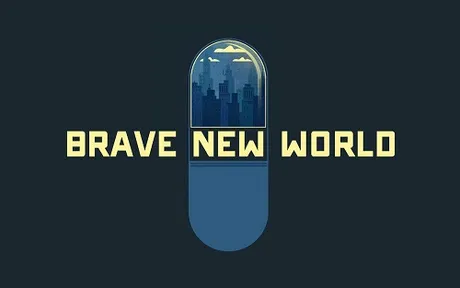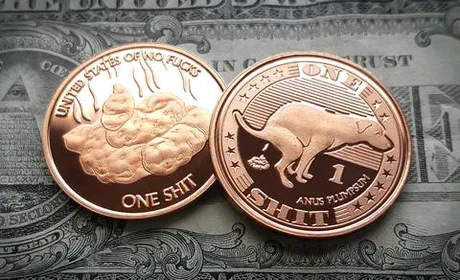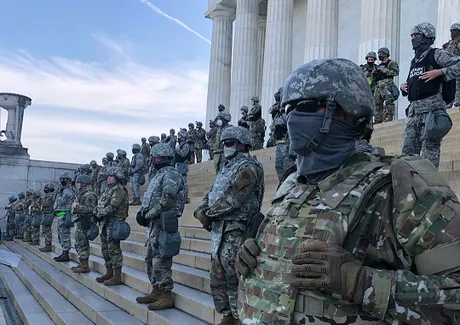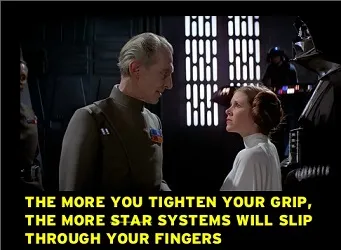Looking at both sides of the dystopia.
Most people have read 1984 or at least know enough about it to understand the constant references made. Especially now in 2020, these dystopic novels only seem to become more and more relevant. However, we would be quite remiss to ignore Brave New World, whose methods of control are completely different than the overt force used in 1984.

1984 tells only part of the story. 1984 is about a technologically dystopian society that is centralized under a boot-on-your-neck statist... really really fascist control system.
Aldous Huxley had a different perspective which is actually even more powerful... again a dystopia of a society under heavy control, but in this case it wasn't the overt control of violence and fear, but instead control through cheap entertainment by tickling the dopamine centers of pliable subjects. This kept the people occupied by triviality so they would miss the horrific things happening in their society (eh hem Facebook)
But it's obviously not just Facebook.
- Bars/Clubs/Drugs/Alcohol/Addictions
- TV/Netflix/Hulu/AmazonPrime/DisneyPlus/Stars/HBO
- TickTock/Twitter/Instagram/SnapChat/Youtube/Tumblr
- Video games / Shopping / Social Status Seeking
- Etc.
Developed nations have far more distractions, putting the population in an apathetic state no matter how heinous foreign policy becomes or how bad other people have it. Life is just good enough to justify inaction and just bad enough to only worry about oneself.
What we see has emerged today is really kind of the perfect mix between the two, because not only do you get Aldous Huxley's entertainment based enslavement... but beautifully enough [that data is then fed into a system of more overt oppression].

Both sides of the coin.
This is why I really think everyone should read both 1984 and Brave New World. Perhaps I'll even read them again sometime if I ever get around to it. I don't read a lot. Blame it on the A-D-D. However, once I commit to something I usually can finish it pretty quickly. It's the initial commitment that is most difficult.
All forms of control are very important. In a digital age, data is the most dangerous weapon. Manipulating that data and convincing everyone that this system is acceptable (and even desirable) is priority number one for those who rule.

Yes, certainly, boot-on-your-neck might-is-right force coming from the military-industrial-complex and the police-state are the backbone of control. However, that control is fleeting in the face of overwhelming consensus to the contrary. Without manipulating the hearts and minds of the people, the elite has no power, which is why they so openly devote massive resources to accomplishing just that through various forms of propaganda and spun narratives.
For example, those who participate in military service are often heavily brainwashed into thinking the actions they perform are for the good of the world. Within this narrative, they are framed as the brave heroes who defend the good guys and kill the bad guys. We've seen many times that if this narrative is taken away they become extremely upset, and understandably so.
So when capitalism and imperialism dictate that we should start negotiating deals with our sworn enemies and terrorists like Al-Qaeda and ISIS, military personnel reject it with every fiber of their being. They were already brainwashed into a narrative that these people were the sub-human sworn enemies of the 'good guys'. You can't have it both ways.
So again, while it looks like the elite can just run around doing whatever they want, they really can't. The invisible web of politics and data manipulation is very complex, and if mismanaged could fall apart immediately. These threads are getting weaker and weaker during these uncertain times and we see the establishment scrambling to tighten their grip. Will it work, or will this house of cards collapse and be rebuilt on flat architecture?
This "New Normal" is happening one way or another.

"Will Bitcoin save us?"
Yes, because it can open the door for all these systems to emerge. However, when it comes to save us it may not be called Bitcoin... it may be a secondary effect that's way removed... kind of like how everybody runs Linux they just kinda call it Android, or the subsystem of Windows, or they call it the underlying POSIX infrastructure of their Mac OS. It's still kind of Linux in every device everywhere you just never know it's there.
Linux won by disappearing into the background. Maybe Bitcoin saves us, not because we use and know we are using Bitcoin, but because it kind of fades into the background as an infrastructure technology that redefines our very conception of how trust works in a networked society.
Posted Using LeoFinance Beta
Return from Brave New World vs 1984 to edicted's Web3 Blog
